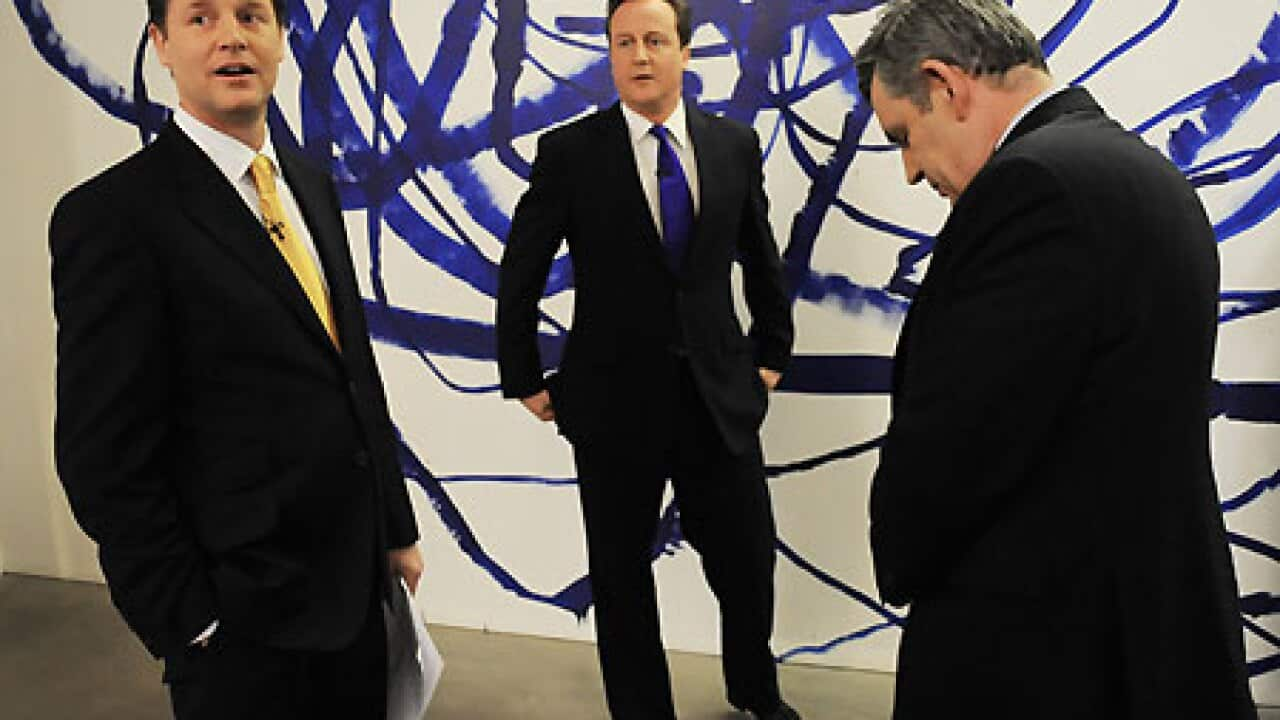If the opinion polls are right, the UK is on the verge of a hung parliament - something which hasn't happened in Britain since 1974. So what will it mean for the country?
What is a hung parliament?
A hung parliament is one in which no party has an overall majority.
In the UK, this would mean no one party having more than half of the 650 MPs in the House of Commons.
Traditionally, British politics has been a two-horse race, between Labour - in power since 1997 - and the Conservatives.
This, coupled with the country's first past the post electoral system, has made hung parliaments extremely rare.
But growing disillusionment with politics as a whole in the wake of the MPs' expenses scandal has seen a dramatic rise in support for the UK's third party, the Liberal Democrats.
Recent polls suggest a genuine three-way split when Britons go to the ballot box on May 6, which could see the Liberal Democrats as 'kingmakers', effectively given the casting vote to decide who gets to govern Britain.
What happens in a hung parliament?
Traditionally, in the days following the election of a hung parliament, the incumbent Prime Minister is given time to see if he or she can form a government.
This could mean forming an alliance with politicians from other parties - most likely the Liberal Democrats, but also members of other minor groups and independent MPs.
In such a case, those joining an alliance are likely to wring out a series of concessions, such as electoral reform, or a number of cabinet positions, in exchange for their support.
However, Liberal Democrat leader Nick Clegg - seen as the most likely coalition partner for both Labour and the Tories - has warned Prime Minister Gordon Brown that he will not automatically back him in the event of a hung parliament.
Clegg insists he will not 'prop up' Brown and his government, should Labour come third in the race for votes on May 6.
If Brown fails to reach a deal whereby he stays on in power, the Queen would ask the leader of one of the other parties - traditionally the one most likely to create a stable coalition - to try to form government.
The political horse-trading this would prompt could go on for weeks, or even months leaving the UK rudderless.
If no-one is able to reach a full coalition deal, one party could continue as a minority government if enough other MPs agreed to support them on a piecemeal basis.
The absolute minimum this would require would be support to pass the government's annual finance bill - without which they would be unable to levy income taxes - and backing in case of votes of no confidence.
In 1997, Conservative PM John Major lost his majority following a series of by-election defeats, but was able to remain in power fro several months thanks to such a deal with the Ulster Unionists.
Ultimately, if the instability continued, a fresh election would be called.
What would a hung parliament mean for the UK?
In a word, uncertainty. The political stalemate that follows a hung parliament could last days, weeks or, at worst, months - with potentially dire consequences for the country.
In 1974, the last time the UK saw a hung parliament, Conservative leader Edward Heath remained at Number 10 Downing Street for several days, trying to convince the then Liberals to support him in a minority government.
When those efforts failed, Heath resigned and Labour leader Harold Wilson, whose party had secured four more seats in parliament, took office. But his grasp on power was shaky, and he called another election seven months later.
There are concerns that a hung parliament could see Britain return to the bad old days of the 1970s, just as the country is struggling to recover from a recession sparked by the global financial crisis.
There are also fears that a lengthy period where no-one is seen to be in charge of the UK and its economy might prompt ratings agencies to downgrade the UK's credit rating from its current AAA status, leading to further economic misery.
Conservative politicians keen to convince voters to support them to an overall majority - have highlighted this possibility, with Shadow Chancellor George Osborne warning of "economic paralysis" in the event of a hung parliament.
Share

